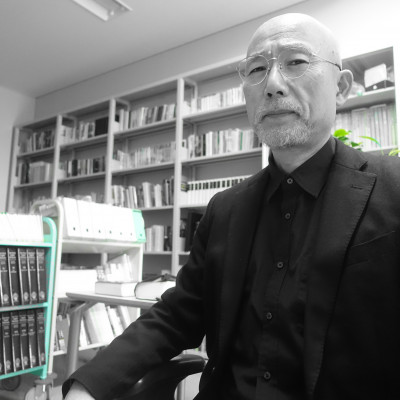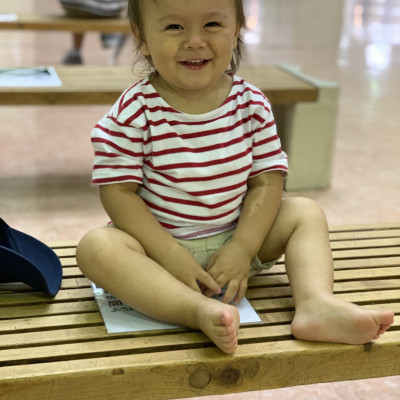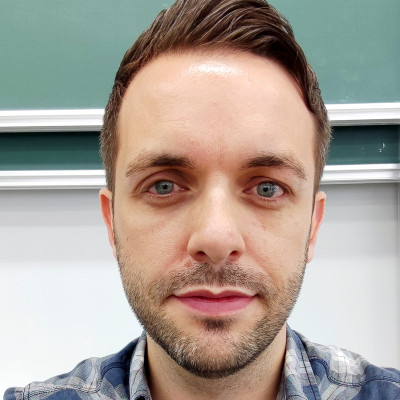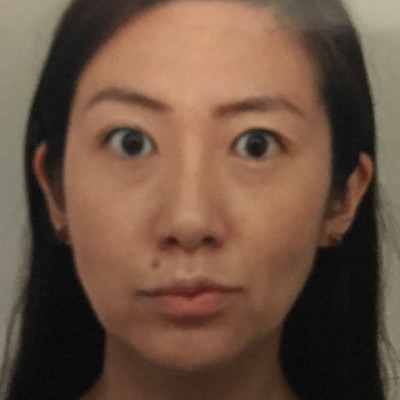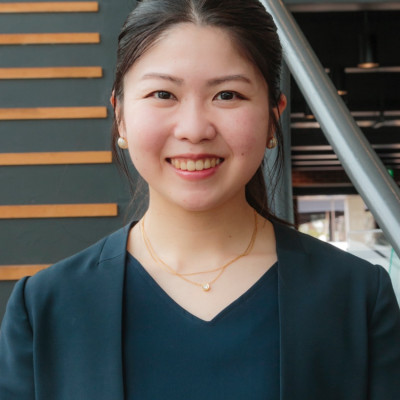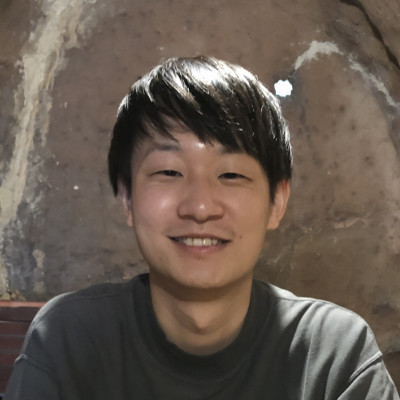Sessions / Location Name: ONLINE
Virtual Location
Virtual: You cannot enter virtually via this page. Click on the titles of individual presentations or go to the Live Page
Online Test #3301
You can test the Zoom link for online sessions here.
Teaching Self-study: Ideas to improve Self-study Habits #2843
The presenter will share ideas for guiding students from ‘I don’t know what to do’ to ‘now I know what to do’. The ideas include: setting goals, mental preparation for daily self-study activities, Learning Cycle, and note-taking strategies. English as it is taught in classrooms often focuses on testing students rather than on having them acquire learning skills. Learning strategies should be taught explicitly to enable our students to acquire learning skills. Learning Cycle, Active Recall, and study habits are three theoretical paradigms the presenter encountered in recent years. Learning takes place when students have opportunities to repeat the content. One effective strategy is using the Learning Cycle. The famous Feynman Learning Technique is one of the variations of the Learning Cycle. Active Recall can be used in connection with the Learning Cycle. Simply said, Active Recall is an act of self-questioning. By using Learning Cycle with Active Recall, the content can be repeatedly reviewed by students. Next, the presenter will share his collection of note-taking styles including some unique note-taking styles. At the end of the presentation, the results of the presenter’s own action research in this area will be shared.
Supplementing self-study to four EFL University Students Online Learning #2956
This presentation will show how a self-study planner assisted four EFL students whilst they took mandatory university courses online over two semesters. The university of this preliminary study moved all integrated English classes online using Zoom due to the coronavirus. Approximately each class had twenty students, making it difficult for teachers to talk to students one-to-one perhaps missing out on important instruction. Furthermore, as students were not on campus, they did not have the chances to talk to other students in English outside class time. With four first year students, the instructor made a planner and reflection sheet so that students could plan and track their personal language learning goals. Data was collected using mixed methods by collecting planners, conducting monthly questionnaires, and an interview at the end of each semester. Participants attending will learn how the planner was designed, distributed, and utilized so that students could take control of their learning, and plan more efficiently. Moreover, students’ comments will show that the planner helped them to stay on course for various external exams, and study programs they undertook whilst away from campus. In addition, mistakes and deficiencies of the research will be presented providing hints as to what not to do.
A tale of two syllabi: towards theory driven CLIL courses #2705
The importance of content and language integrated learning (CLIL) theories is increasing in the Japanese tertiary sector as CLIL courses proliferate, often driven by institutional and teacher interest. Additionally, in undergraduate English language programmes teachers may be tasked with developing content-focused courses that are not explicitly described as “CLIL”, but nonetheless require content to drive language learning. These courses often do not express designs that are both theoretically driven and context-responsive which seems to arise from the lack of a collective understanding of CLIL in Japan. This session will focus on two syllabi taught in the same context and explain how their design has been guided by theories on three levels: educational philosophies such as constructivism and sociocultural theory that underpin CLIL; the conditions of CLIL seen to be advantageous to language improvement and often explained via second language acquisition theory; and the numerous CLIL-relevant conceptual frameworks which also serve to shape understandings of approach. The presenters will examine theoretical similarities and differences between the two syllabi as a way of illustrating the diversity of CLIL implementation in the Japanese tertiary sector. This presentation will be useful for institutions and teachers seeking to implement theoretically driven CLIL courses.
Creating & Utilizing Videos to Increase Student Engagement with Xreading #2851
This presentation will chronicle the creation and implementation of short videos designed to encourage students to engage with the extensive reading (ER) platform Xreading more regularly. The context of the current study is a compulsory English course at a private university in Japan, in which students are required to read 60,000 words in Xreading per semester. Teachers often observe that despite undertaking an ER orientation, students do not fully appreciate the benefits of ER, and often leave large amounts of reading until the very end of the semester. Students who do this fail to reap the full rewards of ER and risk receiving a lower grade or failing the course. To encourage students to engage with Xreading more regularly, the researchers created 5 short videos. The videos extol the benefits of ER, suggest ways for students to increase reading enjoyment, and directly encourage students to engage with ER on a frequent and regular basis. This presentation will discuss the impact of the videos on the students’ self-reported engagement levels and their actual reading habits based on an analysis of the Xreading data. Finally, future use of the videos and the direction of future research will be considered.
Student Impressions about the Use of Jokes in the EFL Classroom #2906
“Why shouldn’t you write with a broken pencil? Because it is pointless.” Jokes like this fall into the category of dad jokes. The usage of humor in the EFL classroom has been known to increase motivation, increase confidence, keep student attention, and create a positive classroom atmosphere . Furthermore, Japanese university students seem to favor the inclusion of jokes in English courses (Neff & Rucynski 2017). To verify such claims, through a daily warm-up icebreaker of dad jokes and a follow-up questionnaire, this study aimed to gather data about Japanese university students’ impressions of such jokes in the English classroom. This questionnaire surveyed 124 Japanese university students after eight weeks of introducing a joke at the beginning of each class. The students were surveyed about their impressions of jokes in six areas: enjoyment, practical usage of assisting in the comprehension of the meaning of words, motivation, shareability, classroom atmosphere, and general education. The results of the survey were overwhelmingly positive in all categories except for the shareability category. The possible implications of these results are also discussed, such as the recommendation that jokes be used as an icebreaker and the possibility of extended lessons that examine jokes.
Transfers of L1 and L2 in bilingual education #2954
It’s often argued that we have the order of language acquisitions in which we acquire questions including embedded questions and negations. However, I completely disagree with this theory and I will defend my stand with valid arguments in this presentation, connected to an analysis of narrative story-telling of writing. In addition, I discuss that L1 speakers have a tendency in talks and interviews, which will have an influence on the way of interactions on a conversation analysis, related to bilingualism. This research, therefore, focuses on two sides of learning and an original identity in language. To begin with, a negative transfer of L1 has been completely shone a glaring light on usages of second language under the onslaught of asking questions and negations in syntax. Moreover, Japanese might not acquire the functions of indefiniteness and definiteness correctly as the same thing as the Russians (Odlin, 1989). Furthermore, a positive transfer of L2 has been highlighted in the instruction to give opinions that learners can understand quite easily, which provides an illuminating discussion of how languages are acquired in the light of that opinion method. Basically, a transfer is psychologically defined as a training habit that a first task affects on a second task (Kimball & Holyosak, 2000; Manaro, 2018). This presentation deals with the insight to rethink the curriculum that follows grammatical structures in the shadow of the drills that would make a habit in brains. In conclusion, research in a second language acquisition still remains in the dark about the extent of which teaching methods absolutely perpetuate convincing language acquisitions.
Enhancing Productive Skills through Technology: Mentimeter in the ELT Classroom #2708
Following major setbacks in teaching and learning over the past two years and now engaging in face-to-face teaching post-COVID, one of the major challenges for teachers is to keep students engaged and motivated in order to learn and stay focused in the classroom. On the other hand, teachers in Oman have long been tackling the issue of teaching vocabulary to students in the foundation level English courses. To this end, this study examined the effectiveness of using Mentimeter, a Student Response System (SRS), to enhance vocabulary learning for productive skills in the ELT general foundation program. By using Mentimeter, students can collaborate interactively, yet anonymously, with their teachers and peers through an engaging online platform. This collaborative SRS expands the students’ vocabulary knowledge through a variety of item types, such as word clouds, quiz competition, open-ended questions, and the newest feature, ‘Pin on Image’. An action research was conducted with 50 students using pre- and post-test, questionnaire and semi-structured interviews. The results of this study indicate the beneficial aspects of integrated learning through innovative technological tools to boost students’ performance in productive skills. In addition to boosting vocabulary retention, this technological tool allows students to overcome demotivation and helps teachers to create more effective and interactive lessons to achieve learning and teaching goals. Overall, the implications can be constructive for educators in making use of Mentimeter to enhance students’ vocabulary knowledge.
What Eye Tracking Shows about the Most Effective Reading Strategies #2732
Readers often struggle with reading competency due to a lack of vocabulary and ineffective reading strategies for dealing with it. When a reader encounters unknown lexica, they have three main options: trying to guess word meaning, ignoring the unknown word, or dictionary use. Teachers and learners often have differing philosophies on the most effective strategies, and empirical research is lacking.
This session describes a series of empirical research studies addressing this gap in the literature. The studies of Japanese L2 college-aged readers utilized eye tracking, comprehension scores, and vocabulary recall scores. The results revealed that the participants tended to rely on dictionary use even though half the words were irrelevant to the task and half the words had clear context cues. Eye tracking revealed that most participants did not even read the context cues before checking the dictionary. Participants who reviewed relevant sentences after reading an unknown word and those who checked dictionary definitions carefully performed better on the post-reading comprehension test.
Finally, the implications are presented. Training activities aiming to increase learners’ strategic competence will be modeled. Attendees will come away with a clear understanding of research-informed guidelines and activities that can guide their instruction and materials development.
Educators in Training Forum #2649
The Graduate Student Subcommittee (GSS) is for JALT members who currently study or are thinking about studying at university, with a focus on those undertaking graduate-level studies. In this presentation, we will discuss the subcommittee’s activities since its creation at the Executive Board Meeting in June, 2021. These activities include interviewing leaders within the JALT community, and presenting during the JALT international conference 2021. We are a new, small subcommittee, so we are looking for like-minded students to join us in creating a space for students within JALT. While many of our interests and concerns overlap with the wider JALT community, we aim to create a space for students to come together to share ideas and help support each other through the last words of our dissertations or thesis defenses. We welcome anyone to join us to share ideas about how this subcommittee can help the students within JALT, but we especially welcome current graduate students to join us to share their ideas and concerns and network with other students.
Challenging Conventions: Opening up New Spaces in Learner Development (ONLINE SESSIONS) #2652
This forum will examine how new learning spaces can help learners grow beyond conventional education environments. Presenters will explore holistic and ecological perspectives on learners’ growth, taking into account multiple aspects of their experiences, their interactions with others, and different affordances in diverse learning environments and spaces. The forum will include both studies that shed new light on the impact of sociocultural and psychological factors on the development of learner autonomy, as well as practice-related accounts that explore learners’ practices in a range of learning spaces outside of conventional classroom settings. In the forum participants will have opportunities in pairs and small groups to discuss and reflect on different non-conventional environments, spaces, and processes that learners can access and/or use. The combination of these theoretical and practice-based perspectives will encourage us to think about learner development from fresh angles, not only under the current and post-pandemic situation, but also beyond, so that we can come away from the forum with fresh ideas for challenging conventions and opening up new spaces in learner development in our own learning, teaching, and research.
Round One 11:50 to 12:20 Phillip A. Bennett and Isra Wongsarnpigoon and Andrew Barfield
Round Two 12:20-12:50 Yuri Imamura and Michael Kuziw
Reforming English language teacher education in Nepal: Prospects and challenges #2908
Teacher education provides a framework of ideas to enhance professionalism in foreign language teaching. It is concerned with exploring good practices in teaching, which have already been tried and tested in many educational contexts. Similarly, teacher education provides the language teachers with insights into the nature of language teaching. With the explosion in language teaching, there has been an increased demand for language teachers, and the consequent need to train these teachers. With this reference, this paper focuses on the review of the existing situation of teacher education with the relevant considerations of epistemological as well as the paradigm shift of teacher education from global to local perspectives in Nepal. The present paper is based on content analysis where the literature from the different contexts such as the context of developed countries, developing countries, and the local contexts was reviewed under the qualitative research approach following the focus group discussion. With the reference to existing literature and views of headteachers and teachers through focus group discussion, the paper discusses several perspectives of reframing the English Language teacher education program. Mainly, policy-related, pedagogical, technological, and research-based challenges and their mitigating aspects have been illustrated in the paper through focus group discussion and review of the relevant works of literature. Therefore, the paper attempts to explore the prospects and the challenges as the foundational components to reframe teacher education in the context of Nepal.
Effective use of questioning strategies in active classroom interaction #2730
This presentation will highlight the effective use of teacher’s follow-up questioning strategies to construct active teacher-student interaction in English lessons in Japanese junior high schools. The new Course of Study at junior high school has newly introduced “Teaching English in English” policy to give students much input and chances to speak English. However, if students are not used to communicating in English, they often find it difficult and keep silent, and the communication often breaks down. To cope with these situations, teachers’ questioning strategies have great potential to encourage students to answer (Wu, 1998). This presentation will explore how teachers can actively involve Japanese junior high school students in interaction and provide them with learning opportunities through the following questioning strategies: simplifying the questions, giving examples, repeating the questions, and asking further questions. The presenter designed the lessons and interaction based on these strategies. The lessons and interactions were recorded by videotape and analyzed by Conversation Analysis. Among these strategies, especially simplifying the questions and giving examples helped the students understand what the questions meant and respond to them. The presenter will share the techniques and students’ reactions and responses in the classroom based on the actual interaction data.
